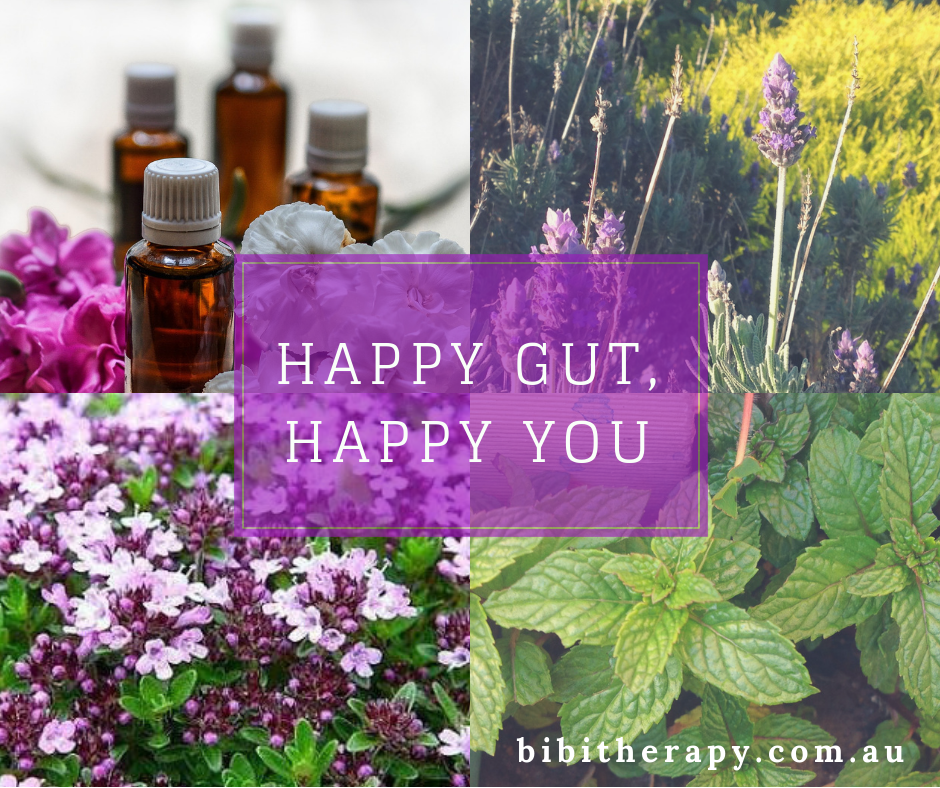Essential Oils and Gut Health
You know the expression “the gut feeling” one? Did you know that we have three brains that enable us to make decisions? But do we know how take care of them? Which one is more important? Why? Are they connected? How? It turns out that Science has made the connection between digestive-system activity and cognition (thinking skills and memory), in other words there is clear link between The Mind and The Gut (Soosalu and Oka, 2012).
Let’s have a look how can one take care of one of the brains residing in the Gut. Yes, it’s scientifically demonstrated that our second brain is in the gut. Gut microbiota contains more than three million microbial genes, which is 150 times more than the human genome itself. In other words the 100 + trillion odd cells residing in the gut, forming the gut microbiota communicate in an extraordinary way with the Brain Central Nervous System
Heading on to the Holiday Season, we surely experience a great deal of feelings, be it because we enjoy some extra delicious foods or simply because we feel guilty/or not for doing so. The plethora of feelings varies from person to person. They may start in waves of anticipation and excitement for the season. Then just when you want to savor the moments they’re gone on the Ether. Feelings of weakness, stress, anxiety even depression knock on the Brain’s door. So what can you do? Well you can always resort to Aromatherapy as a sure way to lift up the spirits a bit.
That is to say we can use some essential oils to calm symptoms relating to the functional bowel problems such as constipation, diarrhea, bloating, pain, stomach upset. So fixing problems in the gut affects what’s happening in the brain. There is a growing body of research based evidence that irritation in the gastrointestinal system sends signals to the Central nervous system that ultimately affect the mood changes, demonstrating the relationship between gut microbiota, stress and anxiety.
So let’s see how can we keep the digestive system in top condition, while keeping the immune system alert and functioning using ancient Aromatherapy way. The table below outlines some of the essential oils than can be effective in facilitating the digestion of food. Using the oils for a massage or adding drops to skin and hair care products can be equally beneficial.
Table 1. Fragrant solutions to help keep digestion and the gut working in top condition. Not surprisingly, some oils are also very effective in emotional problems.
* — Caution: Avoid using this oil if pregnant. Do no use this oil if you undergo chemotherapy, components of this oil interact with the treatment; consult your doctor before using it.
| Oil | Botanical Name | Effect on the gut and how to useSource |
|---|---|---|
| Peppermint* | Mentha x piperita |
|
| Lavender | Lavandula angustifolia |
|
| Cumin | Cuminum cyminum |
|
| Thyme | Thymus vulgaris |
|
So, are essential oils more than just a lovely scent? Absolutely! But while their benefits can be amazing, so can their side effects if they’re used incorrectly – just be sure to do your research first.
So this Christmas, keep the gut happy and you will be happy too.
Wishing you a great time of Peace and Light, Joy and Calm.
Precautions
If you choose to put on the oils mentioned above, please consider the following:
- The use of any oil should not replace any prescribed course of treatment. If you have a sensitive skin, make sure you conduct a patch test before you splash essential oils on your skin;
- Caution is advised when using lavender and drugs that induce sleepiness, such as benzodiazepines, barbiturates or drugs to reduce blood pressure;
- Always dilute the essential oils, ratio of 2-3 drops with a teaspoon of carrier oil of your choice and
- remember to check with a medical practitioner who specialises in aromatherapy before attempting to use any essential oil. This is especially important if you are pregnant, nursing or undertaking any special medication including homeopathic medication.

